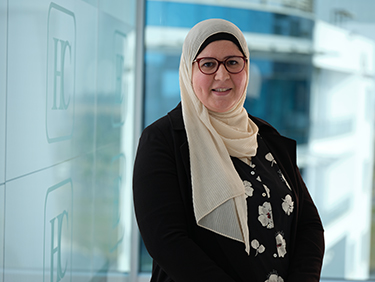-
Everyone from small to medium and even enterprise-level organizations have changed forever. The pandemic currently facing the globe has brought a special set of circumstances that have permanently altered the way investors make decisions. This article is all about how investor trends and behavior will shift post-pandemic. Before we dive into some of those new trends, let’s take a look at a few economic sectors that are currently on the rise and which sectors are on the decline.
Post-Pandemic Economic Sectors You Want to Pay Attention to
Quaternary activities fall under what’s known as the knowledge sector of the economy. In both emerging markets as well as developed nations, quaternary activities show great potential from an investor’s perspective. Accounting and brokerage firms, mutual fund managers, tax consultants, software developers, statisticians, business intelligence firms, and cybersecurity agencies all have something in common. They are decentralized in nature.
These quaternary activities in the knowledge sector show strong opportunity for investors because they have the ability to be decentralized. Not being connected to any one single economy, location, or governmental organization means they can operate independently. That is a huge advantage and one trend among investors as we head into 2021.
Not All Economic Sectors Are Equal
Unlike quaternary activities in the knowledge sector, investor trends show diminished interest in tertiary activities. However, not all tertiary activities show a decrease in revenue earning potential. More specifically, the retail industry that is composed of retail consumer spending and restaurateurs are particularly vulnerable. Therefore, post-pandemic investing will undoubtedly show a bearish trend in these areas.
New Trends in The 2021 Landscape
Our world is rapidly changing. Certain trends that have emerged at the end of 2020 have now solidified themselves at the beginning of 2021. Let’s take a look at three of the most impactful trends in the business environment changing our world.
An Emphasis on Remote Operations
As businesses attempt to adapt to a post-pandemic landscape, more and more companies are embracing remote operations. Whether it’s software development, project management, ERP, business intelligence, business development, or anything else, innovative tech allows it to be completed over a remote platform. This includes companies that provide services like telehealth, online meeting platforms, remote sales team building software, and even dating apps. The future is becoming increasingly virtual.
Business Intelligence Becomes Mainstream
Interpreting big data and using that information to arrive at data-driven decisions is not a new industry. However, our post-pandemic landscape is putting a new emphasis on services like Microsoft’s Power BI and business intelligence firms that help interpret big data and convert that raw information into useful formats. Everyone from investors to sales managers utilizes business Intelligence platforms to make more informed, and educated decisions backed by the data.
Finance Becomes Decentralized
Fintech services and cryptocurrencies have shown a trend of becoming increasingly decentralized. Businesses no longer have to rely on central banks and government financing. Investors and other businesses have alternatives that come in the form of decentralized fintech providers, innovative online lenders, trading platforms, and brokerages that leverage a decentralized business model. This is a trend becoming more popular by the day.
Specific Industries You Want to Be A Part of Post Pandemic
A little bit earlier we discussed economic sectors already showing huge potential as we move into a post-pandemic landscape. However, let’s dive a little bit deeper to discuss specific industries within those sectors where investing trends and behaviors show great promise.
CyberSecurity
Now is as good as time as any to hop onto the cybersecurity wave sweeping through the globe. As an investor, entrepreneur, equities broker, or anyone else searching for booming industries, you should be aware of a few things. Cybersecurity is a large industry. Diving into the specifics reveals that the areas of authentication, cloud data protection, and application monitoring are the most lucrative niches within the market.
Education & E-Learning
With brick and mortar schools physically shut down due to pandemic precautions, virtual education and the E-learning industry is on the boom. Countries like China are at the forefront of developing large & powerful enterprise-level organizations focusing on virtual education and E-learning platforms based 100% online.
Global Logistics
International shipping is the lifeblood of every economy. As goods are manufactured around the globe and shipped out across the ocean, fortunes are made and empires are built. It’s been that way for thousands of years. You could say that the global logistics trade is both recession & pandemic proof. The industry never sleeps and investors can count on the ships moving so long as there is oil to fuel them.
The Future Is Largely Unwritten
This article has given you a detailed snapshot of what industries are booming and which economic sectors are most vulnerable. While investor trends and behaviors can leverage that information, the future is largely unwritten. While we may know what a post-pandemic business environment will look like, only time will tell how that directly impacts the free market.










